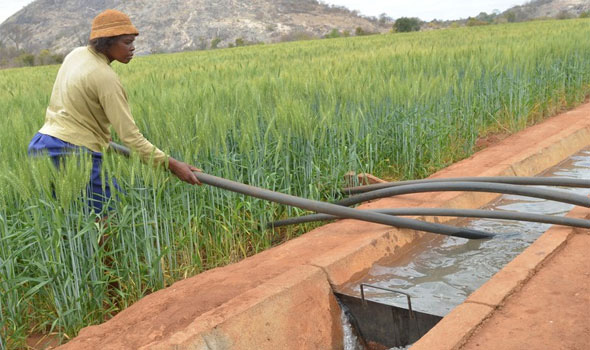Late-to-plant wheat farmers urged to shift focus
WHEAT farmers who could not meet the 15 June winter planting deadline have been urged to stop planting and instead shift focus towards effective agronomic practices, disease, weed and irrigation management. Late planting of wheat negatively affects yields, reduces quality and exposes the wheat crop to risk of destruction by early rains.
In a statement on Monday, Ministry of Lands, Agriculture, Fisheries, Water and Rural Development permanent secretary, Dr John Basera said: “The Ministry of Lands, Agriculture, Fisheries, Water and Rural Development wishes to thank all the wheat farmers for supporting the thrust towards wheat and flour self-sufficiency.
Wheat
“Farmers are hereby advised that the optimal wheat planting window closed on the 15th of June 2023 and any further planting after this date is discouraged and must stop.”
Dr Basera said late planting of wheat negatively affects yields, reduces quality and exposes the wheat crop to risk of destruction by early rains.
“Focus should shift and be redirected towards effective agronomic practices, disease, weed and irrigation management.
Farmers are encouraged to scout their fields on a regular basis and to make fire guards to avoid unnecessary losses due to veld fires.
They should approach their nearest Agritex Office or agricultural extension officer for the necessary wheat growing backstopping support and agronomic advice,” he said.
The Government recently revised upwards the winter wheat production target of 85 000 hectares to 90 000 hectares as the country is positioning itself to be a net exporter of wheat in the region.
Agritex
Wheat production output increased by 25 percent from over 300 000 tonnes in 2021 to 375 000 tonnes in 2022, against a national annual requirement of 360 000 tonnes, leaving a surplus of over 15 000t.
The production figure for the 2022 winter season is the highest ever achieved since 1962 when wheat was first grown in Zimbabwe.-chronicle










